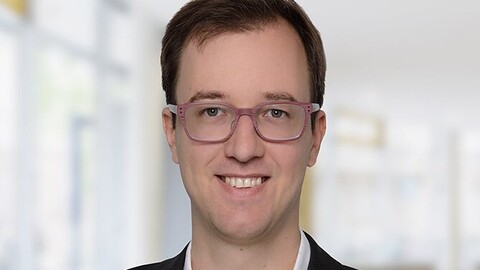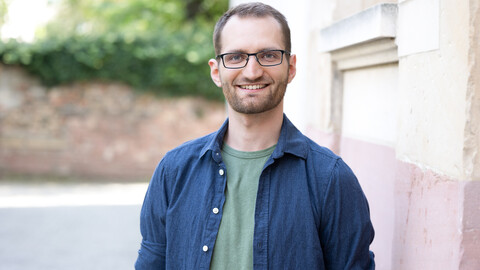
Smart new world?
AI and the Digital Transformation at the University of Mannheim: The year is 2023, and the world is on a digital journey. The University of Mannheim, too, has long been working to meet the challenges the future holds for its teaching, research, and administrative operations. This issue illustrates what this shiny new world looks like at the university and how researchers in Mannheim are shaping it.

It’s not magic — it’s just math
Researchers at the School of Business Informatics and Mathematics at the University of Mannheim have been delving into artificial intelligence for decades. Interest in this research has recently soared and the expertise that has been developed is now In high demand. In this interview, Professor Heiner Stuckenschmidt, Chair of Artificial Intelligence, and Professor Simone Ponzetto, Chair of Information Systems III: Enterprise Data Analysis, explain what artificial intelligence is, what its current capabilities are, and why it is currently such a hot topic. Read on to get to the roots of the hype!

The people behind Mannheim’s digital transformation
Completing forms online, attending seminars remotely, taking exams on your own laptop—many aspects of university life have already gone digital at Mannheim. But who are the people responsible for this digital transformation? FORUM met them and talked about some of their current projects.

Treasure hunting in the data jungle
We all leave countless data traces behind every day. We give stars to products, leave heart emojis under the nicest photos we see, and consume streamed music and videos. Datafication, as scholars call this process, is part and parcel of all of our everyday lives. These volumes of data represent an unprecedented treasure trove to researchers, albeit one that is still well hidden. The goal of making unstructured data usable for the scientific community is now being pursued by the research consortium BERD@NFDI (Business Economic Related Data@National Research Data Infrastructure). Professor Florian Stahl, spokesperson of BERD’s Steering Committee and holder of the Chair of Quantitative Marketing and Consumer Analytics in Mannheim, explains why this is so important.

AI applications that affect us all
Everyone is talking about AI right now. But it has been part of our day-to-day lives for a long time already. We spoke to four of our professors about how AI is already being used in therapy, education, and business—and asked what happens if AI infringes copyright.

“Dear ChatGPT...”
An interview with the AI chatbot: How is the labor market changing as artificial intelligence (AI) takes hold? Dr. Andreas Gulyas, Assistant Professor of Macroeconomics at the University of Mannheim, went straight to the artificial intelligence system ChatGPT with this question and documented his interview with the chatbot for FORUM. The interview was conducted in German and was then translated into English.

AI in teaching – here to stay?
In spring 2023, Hartmut Wessler, Professor of Media and Communication Studies, allowed his students to use ChatGPT to complete an assignment. What was originally planned as a seminar and assessment without any AI assistance turned into an experiment for Wessler, the students, and the University of Mannheim.

Smart cities
A “smart city” thinks independently and makes intelligent and equitable decisions at lightning speed. Mannheim, too, is among the cities with aspirations to become smarter by using data and innovative technology to improve residents’ quality of life. But the transition to becoming a smart city that deploys AI technologies alongside other resources can produce negative repercussions. How can a city like Mannheim successfully become a smart city without systematically excluding some groups of people? An interdisciplinary team at the University of Mannheim is tackling just this question in the CAIUS project.

AI and responsibility – studying how to make AI fairer
In 2020, three projects based at the University of Mannheim were awarded funding under the Baden-Württemberg Stiftung’s “Fair AI” initiative. The projects wrapped up this year. What were the Mannheim researchers’ findings? And how could they help ensure AI is used more responsibly in the future?

InES – software for the future
A system to speed up diagnosis and treatment for tumor patients. Self-driving vehicles to improve hospital logistics. These are the kinds of projects that the Institute for Enterprise Systems (InES) at the University of Mannheim works on—with a particular focus on AI research.

Researching the future
Artificial intelligence is becoming increasingly important as a future-oriented subject in research. In their dissertations, doctoral students from the School of Business Informatics and Mathematics at the University of Mannheim are investigating the many aspects of AI and the effects it has on our living environment. Six of them are presenting their dissertation topics on AI for this edition of FORUM.
